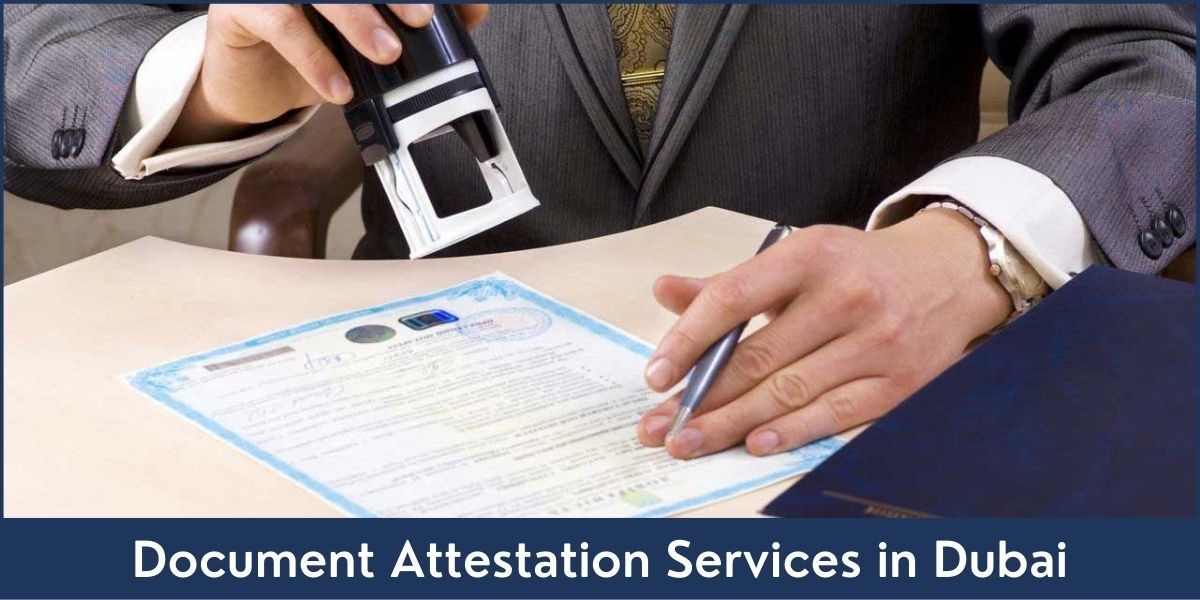Canada has long been a dream destination for students, professionals, and families seeking better opportunities, advanced education, and a higher quality of life. Known for its welcoming immigration policies, diverse culture, and strong economy, Canada attracts thousands of immigrants every year. However, behind the success stories of people settling in Canada lies a crucial process that many overlook until they are required to complete it—certificate attestation. Whether for academic, professional, or personal reasons, Canada certificate attestation plays an indispensable role in immigration success. Without it, applications may face delays, rejections, or unnecessary complications. Understanding its importance and preparing for it correctly can save time, money, and stress while ensuring smooth acceptance of documents by Canadian authorities.
Understanding Certificate Attestation
Certificate attestation is the process of verifying the authenticity of official documents issued in one country so that they are legally recognized in another. It is a form of international document authentication where government authorities and authorized bodies certify that a document is genuine. For immigration purposes, Canadian authorities require foreign-issued documents to go through an attestation process to confirm their credibility. The process involves a chain of verifications that typically starts in the country where the document was issued and ends with attestation from the Canadian embassy or consulate. Examples of documents that often require attestation include birth certificates, marriage certificates, educational degrees, diplomas, police clearance certificates, and professional experience letters. Without proper attestation, these documents may not be accepted by immigration officers, universities, or employers in Canada.
Why Certificate Attestation Matters in Canadian Immigration
Immigrating to Canada involves multiple stages of document submission, from applying for a study permit or work visa to gaining permanent residency or citizenship. At each stage, Canadian authorities must ensure that the documents submitted are valid and issued by legitimate institutions. This is where attestation comes into play. The Canadian government does not have the resources to independently verify every foreign-issued document. Attestation acts as a trusted chain of verification that reassures Canadian authorities about the credibility of the applicant’s background. For example, if a student applies for a study permit, the university acceptance letter and prior academic certificates must be attested to prove that the student’s educational history is authentic. Similarly, for professionals applying under skilled immigration programs, attested employment certificates and degrees prove their qualifications and work experience. For family reunification visas, attested marriage or birth certificates prove relationships. In all these cases, attestation helps reduce the risk of fraud and ensures that genuine applicants are given fair opportunities.
Categories of Documents That Require Attestation
Immigration to Canada typically requires three main categories of documents to be attested. First are educational documents such as degrees, diplomas, transcripts, and professional certifications. These are essential for students, skilled workers, and professionals seeking recognition of their qualifications in Canada. Second are personal documents like birth certificates, marriage certificates, and divorce decrees, which are required for family visas, dependent sponsorships, or proving identity and relationships. Third are commercial and professional documents such as experience letters, business registration certificates, and police clearance certificates, often needed for employment or business migration. Each document type follows its own route of attestation but ultimately serves the same purpose of proving legitimacy to Canadian immigration authorities.
The Process of Canada Certificate Attestation
The attestation process is multi-layered and must be done in the correct order. The first step usually takes place in the country of origin, where the document is issued. For example, if an applicant is from Pakistan or India, their documents must be first attested by local authorities such as the issuing institution, educational board, or government notary. After local verification, documents often go to the Ministry of Foreign Affairs (MOFA) or equivalent authority in the home country for authentication. Once this step is completed, the documents are then forwarded to the Canadian embassy or consulate in the applicant’s country for final attestation. Only after the embassy stamps or seals the document is it considered legally valid for use in Canada. In some cases, documents may also require notarization or certification from additional departments depending on the type of certificate and the rules of the issuing country. The process may seem tedious, but each step ensures that the document is authentic and reliable.
The Role of Attestation in Study Permits
Canada is one of the most popular destinations for international students due to its world-class universities and affordable tuition compared to other Western countries. However, applying for a study permit requires proof of prior education, financial stability, and identity. Universities often demand attested academic certificates to ensure the student’s previous qualifications are genuine. For instance, if a student completed high school in another country, their transcripts and certificates must be attested before a Canadian institution can accept them. Similarly, when applying for a visa, Canadian immigration authorities require attested educational and financial documents to verify eligibility. Without attestation, students may face delays in admissions or visa approvals, which could result in missed academic sessions or lost opportunities. Therefore, certificate attestation is not just a formality but a gateway to higher education opportunities in Canada.
Importance in Work Permits and Skilled Immigration
Canada’s economy relies heavily on skilled immigrants to fill labor shortages in sectors like healthcare, IT, engineering, and trades. To apply under skilled immigration programs or work permits, applicants must submit proof of qualifications, work experience, and professional certifications. Attested documents ensure Canadian employers and immigration officers trust the applicant’s claims. For example, a nurse applying to work in Canada must have their nursing degree and license attested to show that they are legitimately qualified. Similarly, engineers or IT professionals must prove that their degrees and experience letters are authentic. Without attestation, applications may be rejected, and job offers may not be honored. This makes certificate attestation a critical step in ensuring career success in Canada.
Attestation for Family Sponsorship and Permanent Residency
Family reunification is a major part of Canada’s immigration policy. Applicants who wish to sponsor spouses, children, or parents must prove their relationship through legal documents. Attested marriage certificates, birth certificates, and adoption papers serve as legal proof of relationships. Immigration officers cannot rely on photocopies or unauthenticated papers, as these could easily be falsified. Attested documents, however, give the assurance that the relationships are genuine. Similarly, for permanent residency applications, attested police clearance certificates and identity documents are often required to confirm the applicant’s character and background. In this way, attestation contributes directly to the credibility and acceptance of family and residency applications.
Challenges in Certificate Attestation
Although essential, certificate attestation is not always straightforward. Many applicants face challenges such as lack of awareness about the procedure, long processing times, and additional costs. In some countries, government departments are slow to respond, creating delays in the attestation chain. Others may require multiple rounds of verification, leading to confusion for applicants. Scams and unauthorized agents also pose a risk, as some individuals exploit applicants by charging high fees without providing authentic services. These challenges make it important for applicants to research the process thoroughly and use trusted service providers for attestation. Preparing documents well in advance of the immigration process also helps avoid unnecessary delays.
How Attestation Contributes to Immigration Success
Immigration is not just about submitting documents but about building trust with the authorities of a new country. Canada welcomes immigrants but also upholds strict standards of documentation to ensure fairness and security. Certificate attestation acts as a bridge of trust between applicants and Canadian authorities. It reduces the risk of fraudulent submissions, streamlines decision-making for officers, and highlights the applicant’s seriousness about the process. Successfully attested documents increase the chances of visa approval, admission acceptance, or job offer confirmation. In many ways, attestation is not merely a bureaucratic step but a foundation for a successful immigration journey.
Tips for a Smooth Attestation Process
Applicants can make the attestation process smoother by following a few practical tips. First, start early, as attestation can take weeks or even months depending on the country and document type. Second, ensure that all documents are accurate, up-to-date, and free of errors before submission. Third, use authorized service providers or agencies that are experienced in handling Canadian attestation requirements. Fourth, keep both original and multiple certified copies of all attested documents for future use. Finally, stay informed about any changes in Canadian immigration policies regarding document authentication. By being proactive, applicants can minimize stress and ensure their documents are ready when required.
The Future of Certificate Attestation and Digital Solutions
With growing globalization and digital innovation, certificate attestation is also evolving. Many governments and Canadian authorities are exploring digital attestation and verification systems that could speed up the process and reduce fraud. Blockchain-based document verification, for example, has the potential to make attestation more secure and efficient. In the future, applicants may be able to submit digitally attested documents directly to Canadian immigration portals, saving time and reducing dependency on manual processes. While traditional attestation remains the standard today, digital solutions may soon transform the way documents are authenticated for immigration purposes.
Conclusion
The role of Canada certificate attestation in immigration success cannot be overstated. It is a safeguard that ensures authenticity, prevents fraud, and builds trust between applicants and Canadian authorities. Whether for students, professionals, or families, attestation is the key to having documents accepted without question. Although the process can be time-consuming and sometimes complicated, its benefits far outweigh the challenges. Attested documents open doors to education, career growth, family reunification, and ultimately, a stable life in Canada. For anyone planning to immigrate, certificate attestation should not be seen as a burden but as an essential investment in securing a smooth and successful immigration journey.








